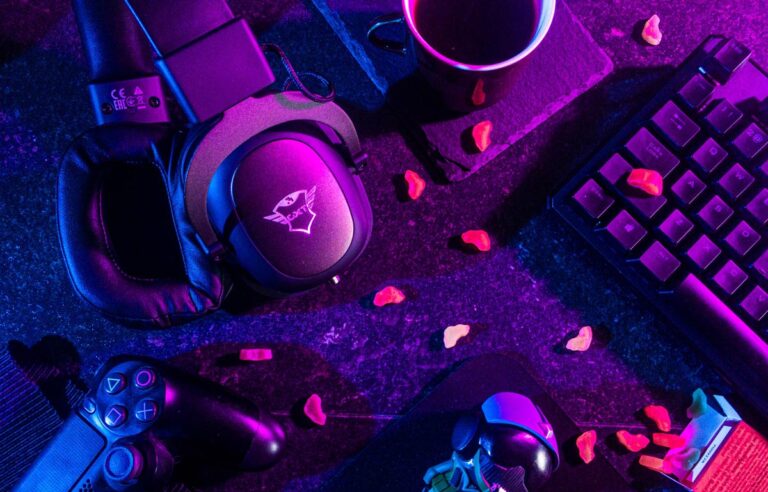Sexism in the gaming industry: the Activision Blizzard lawsuit is just the tip of the iceberg
We may be far from the 1950s but we still have mountains to climb to tackle the sexism and misogyny ingrained in our society. Arguably, nowhere is this more apparent than in the workplace. Although the Equal Pay Act has been in force in the UK since 1975, women still earn, on average, a staggering 19.8 per cent less than men. Not only are women subject to receiving less pay, but they’re also significantly more likely to face sex discrimination and harassment at work.
Instances of sexism can, of course, occur across all sectors. However, the gaming industry, which has repeatedly been reported to facilitate a ‘frat boy’ and misogynistic work environment, is the latest to rear its ugly head. The company in question? Activision Blizzard—the company responsible for releasing major titles such as Call of Duty and World of Warcraft.
The Activision Blizzard lawsuit
Bloomberg first reported the complaint on 20 July 2021, portraying the workplace at Activision Blizzard as explicitly discriminatory towards women—particularly, though not exclusively, towards women of colour. The report highlighted how the company’s leadership is “exclusively male and white” to the point where no woman has ever been named president or CEO.
The filing also stated that “women were subjected to numerous sexual comments and advances, grouping and unwanted physical touching, and other forms of harassment” at the company’s studio. It went on to state that “female employees working for the World of Warcraft team noted that male employees and superiors would hit on them, make derogatory comments about rate, and otherwise engage in demanding behaviour.”
A former chief officer of Activision Blizzard is also being accused of “grouping inebriated female employees at company events and was known for making hiring decisions based on female applicants’ looks.” The suit further claimed that complaints to human resources staff, as well as executives, including Blizzard President J. Allen Brack, “were treated in a perfunctory and dismissive manner and not kept confidential,” which resulted in staff who claimed being “subjected to retaliation, included but not limited to being deprived of work on projects, unwillingly transferred to different units, and selected for layoffs.”
Allegedly, women of colour were “particularly vulnerable targets” of discrimination. The suit highlighted that an “African American employee who worked in information technology” was made by her manager to “write a one-page summary” of how she would spend the time off she requested, which no one else was made to do. Likewise, it was argued that other women in the company were assigned to lower-level roles, paid less and passed over for promotion “in favour of male counterparts who lacked the same experience or qualifications but who were friends with the male head of unit.”
Activision Blizzard has vigorously denied the claims when they were made. This, understandably, frustrated both a large number of employees of the company, as well as the wider gaming community. In response, more than 1,500 former and current employees of the gaming company, which is valued at just over 65 billion dollars, have signed a letter condemning its response to the lawsuit alleging the ‘frat boy’ culture of the company. Ignoring such matters is exactly what serves as a breeding ground for sexual harassment and discrimination.
Sexism in the gaming industry
Make no mistake, this is not an isolated incident. The lawsuit against Activision Blizzard is just one of many instances which bring to light the blatant misogyny and sexism within the gaming industry. Keza MacDonald from The Guardian highlights that over the last few years, hundreds of women have spoken out about the manipulative and predatory behaviour they’ve experienced in their careers in the gaming industry. An investigation conducted in 2018 found that five former employees at Riot Games sued the company over workplace harassment and discrimination, and hundreds more joined walkouts to protest.
MacDonald goes on to state how, even when victims are brave enough to speak out, they are often faced with significant obstacles to overcome. She wrote, “The backlash can be immense. Stories abound of HR departments working much harder to protect companies than the well-being of employees, of complainants having to band together in groups for fear of corporate reprisal, and a gauntlet of social media abuse for those who take their accusations public. And while sexual abuse is at least sometimes taken seriously, some everyday aggressions and obstacles that many women experience day-to-day are brushed off.”
Sadly, workplace sexism is not solely limited to the gaming industry either. As MacDonald states, women are subjected to sexism in tech, film, politics, media… the list goes on. However, for gaming in particular, a toxic confluence of worker disempowerment and a male-dominated managerial class can make it especially unwelcoming for women or those from marginalised genders. Award-winning narrative designer and workers’ rights activist, Megnha Jayanth, believes the “industry sits at the intersection of the worst of the casting couch, predatory networking culture of the entertainment industries, and the unregulated boys-club mentality of Silicon Valley.”






